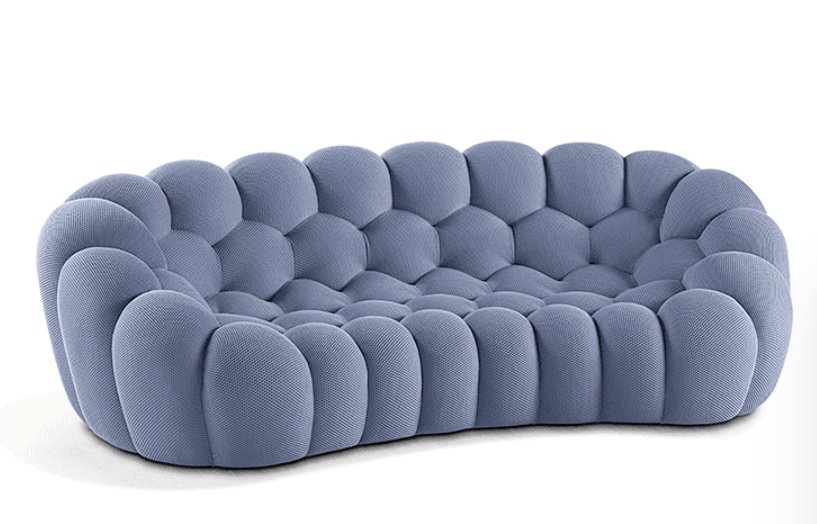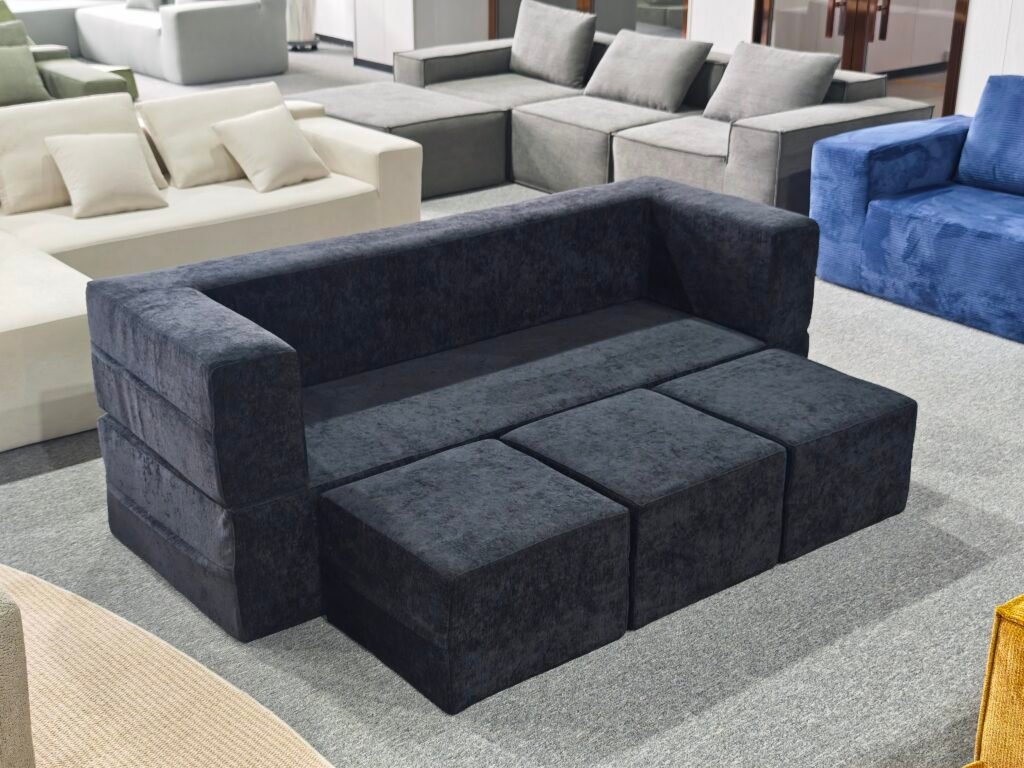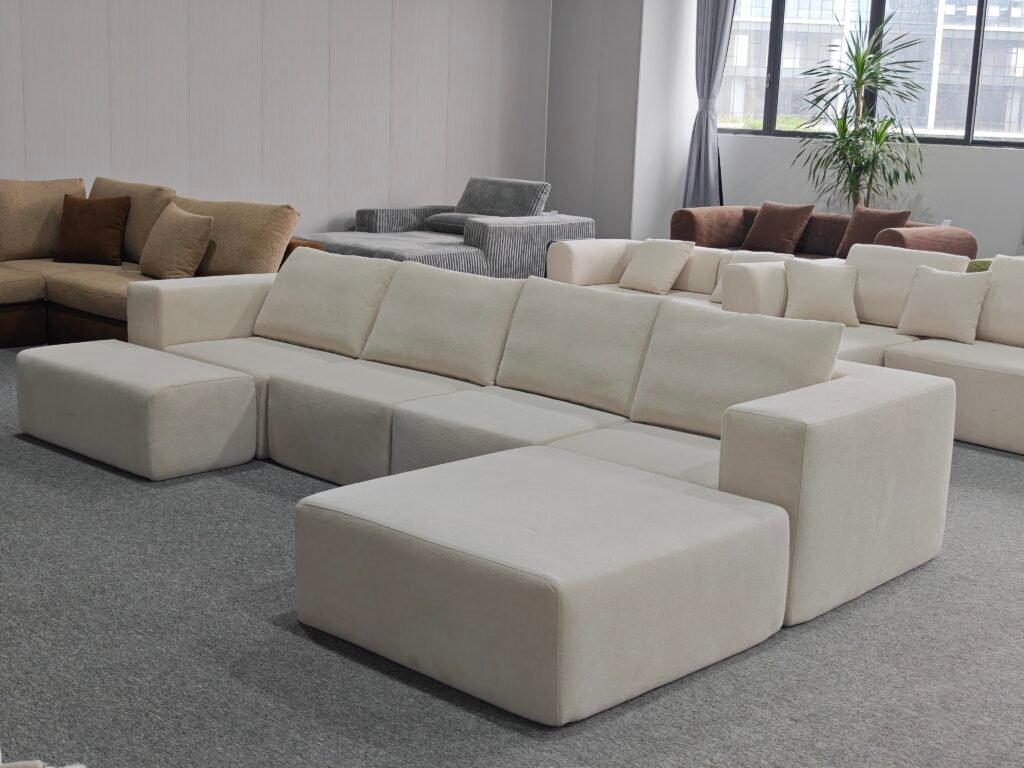As environmental awareness grows globally, consumers increasingly seek furniture options that align with sustainable living and reduce ecological footprints. Compressed sofas have emerged as a favored choice among eco-conscious buyers due to their innovative design, efficient manufacturing, and reduced environmental impact. As a leading compressed sofa factory, modular-sofas.com offers a range of eco-friendly compressed sofas that meet the demands of modern sustainability without compromising comfort or style.
This article explores why compressed sofas resonate with environmentally aware consumers, detailing their sustainability benefits, technological innovations, and practical advantages. A comprehensive table compares compressed sofas with traditional sofas on key ecological and functional factors.


The Rise of Eco-Conscious Consumerism in Furniture
Today’s consumers are more informed and intentional about their purchases, prioritizing products that minimize waste, use sustainable materials, and support circular economies. Furniture, as a significant household investment, is scrutinized for its environmental footprint — from raw material sourcing to manufacturing, transportation, and end-of-life disposal.
Compressed sofas fit perfectly into this paradigm by addressing multiple sustainability challenges inherent in traditional furniture production and logistics.
Key Reasons Compressed Sofas Appeal to Eco-Conscious Consumers
Space and Resource Efficiency
Compressed sofas utilize advanced vacuum compression technology to reduce their volume by up to 67% during shipping and storage. This compact packaging means:
- More units fit into shipping containers, reducing the number of trips needed.
- Lower fuel consumption and carbon emissions during transportation.
- Reduced storage space requirements in warehouses and retail outlets.
This efficiency directly translates to a smaller carbon footprint compared to bulky traditional sofas.
Sustainable Materials and Manufacturing
Many compressed sofa manufacturers, including modular-sofas.com, prioritize environmentally friendly materials such as:
- High-density, durable foams with long lifespans that reduce replacement frequency.
- Fabrics made from recycled fibers or sustainably sourced textiles.
- Non-toxic, PFAS-free treatments that comply with emerging eco-regulations (e.g., bans in New York and California).
- Use of eco-friendly adhesives or glues that minimize harmful chemical emissions.
These choices align with green manufacturing principles and promote healthier indoor environments.
Minimal Packaging Waste
Compressed sofas are shipped in minimal, recyclable packaging, often using cardboard that is easy to recycle and reduces landfill waste. The vacuum compression process eliminates the need for bulky plastic wraps or excess protective materials.
Modular Design for Longevity and Adaptability
Modular compressed sofas allow consumers to replace or upgrade individual components instead of discarding the entire sofa. This modularity extends product life, reduces waste, and supports a circular economy approach.


Easy Maintenance and Durability
High-quality compressed sofas maintain their shape and comfort even after compression, thanks to premium foam and fabrics engineered for resilience. Their durability means fewer replacements, reducing resource consumption over time.
Health and Safety Compliance
With increasing regulations banning harmful substances like PFAS in furniture, compressed sofas engineered without these chemicals offer safer, healthier options for homes and commercial spaces.
Comparison Table: Compressed Sofas vs. Traditional Sofas from an Eco-Consumer Perspective
| Aspect | Compressed Sofas | Traditional Sofas |
|---|---|---|
| Packaging Volume | Reduced by up to 67% via vacuum compression | Bulky, non-compressed packaging |
| Shipping Carbon Footprint | Lower due to compact size and efficient logistics | Higher due to larger volume and weight |
| Material Sustainability | Use of recycled, PFAS-free, and eco-friendly materials | Often uses conventional, less sustainable materials |
| Packaging Waste | Minimal, recyclable cardboard | Excessive plastic and non-recyclable materials |
| Product Longevity | Modular design allows component replacement | Typically replaced as a whole unit |
| Indoor Air Quality | PFAS-free, low-VOC materials | May contain harmful chemicals and VOCs |
| Ease of Recycling | Designed for disassembly and recycling | Difficult to recycle due to mixed materials |
| Consumer Health Impact | Safer, non-toxic materials | Potential exposure to toxic substances |
| Transportation Efficiency | More units per shipment, less fuel consumption | Fewer units per shipment, higher fuel use |
| Cost Efficiency | Lower shipping and storage costs, long-term value | Higher logistics costs, shorter lifespan |
How Compressed Sofa Factory Practices Enhance Sustainability
At modular-sofas.com, sustainability is embedded in every stage:
- Sourcing: Preference for suppliers with certified sustainable materials.
- Manufacturing: Use of energy-efficient machinery and waste reduction protocols.
- Packaging: Designing compact, recyclable packaging to minimize waste.
- Logistics: Optimizing shipping routes and container loads to reduce emissions.
- Product Design: Creating modular, durable sofas that adapt to users’ changing needs.
Consumer Benefits Beyond Sustainability
Eco-conscious consumers also enjoy practical advantages from compressed sofas:
- Space-saving: Ideal for urban living with limited space.
- Lightweight and Portable: Easier to move and rearrange.
- Comfort and Style: High-density foam and modern designs ensure no compromise on comfort or aesthetics.
- Cost Savings: Reduced shipping and storage costs often translate to more affordable prices.
Industry Trends Supporting Eco-Friendly Compressed Sofas
- Regulatory Changes: PFAS bans in major states push manufacturers toward safer materials.
- Growing Demand: Increased consumer preference for sustainable furniture drives innovation.
- Technological Advances: Improved compression and foam technologies enhance product quality and environmental benefits.
- Circular Economy Models: Modular designs encourage repair and reuse instead of disposal.


Case Study: Modular-Sofas.com’s Commitment to Eco-Friendly Compressed Sofas
Modular-sofas.com exemplifies eco-conscious manufacturing by:
- Offering PFAS-free upholstery options.
- Utilizing high-density foam that rebounds to 98% of its original volume.
- Employing vacuum compression to reduce shipping volume by two-thirds.
- Providing modular sofas with replaceable parts to extend product life.
- Using recyclable packaging materials.
- Ensuring fast domestic production to minimize transportation emissions.
Tips for Eco-Conscious Consumers Considering Compressed Sofas
- Verify material certifications and eco-labels.
- Choose sofas with modular components for future adaptability.
- Opt for neutral or natural fabric colors to reduce chemical dye use.
- Consider the entire product lifecycle, including disposal or recycling.
- Support manufacturers with transparent sustainability policies.
Conclusion
Compressed sofas have become a popular choice among eco-conscious consumers because they combine innovative technology with sustainable practices. Their space-saving compression reduces carbon emissions during transport, while eco-friendly materials and modular designs promote longevity and reduce waste. As a trusted compressed sofa factory, modular-sofas.com is at the forefront of delivering comfortable, stylish, and environmentally responsible furniture that meets the needs of today’s green-minded buyers.
Choosing a compressed sofa is not just a smart space-saving decision — it’s a commitment to a healthier planet and a sustainable future.